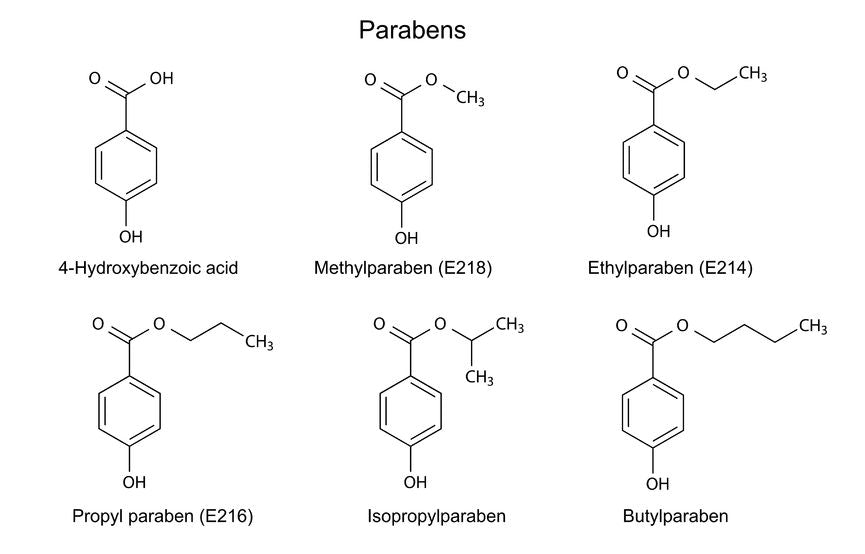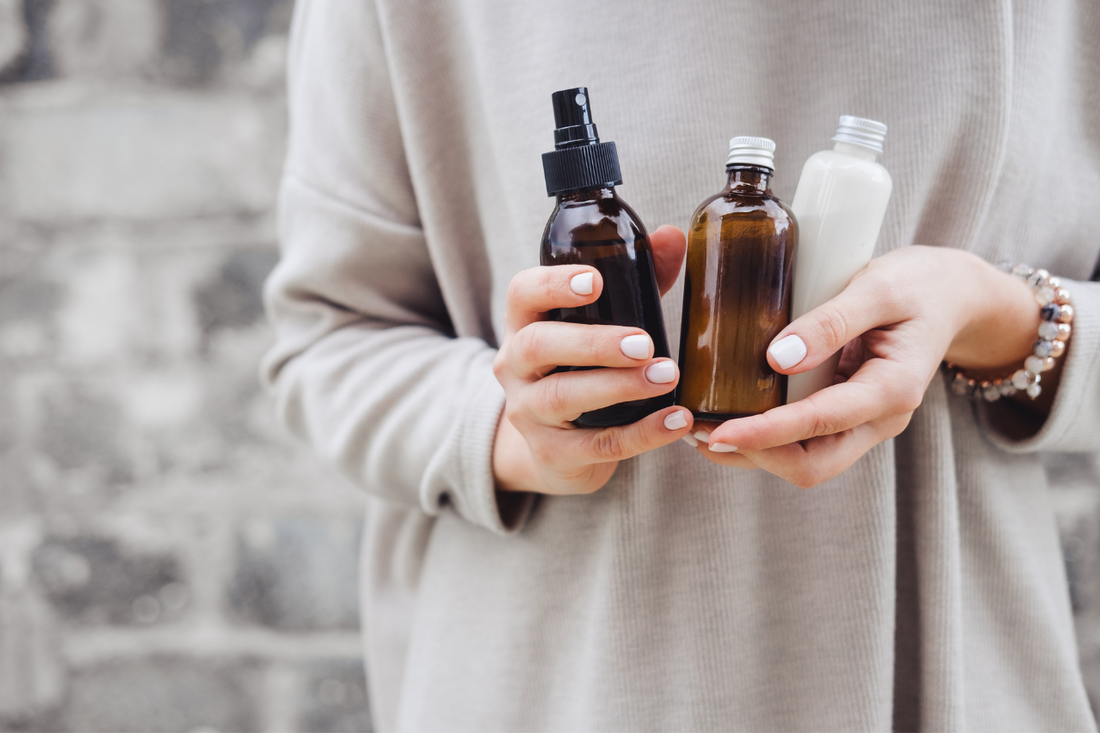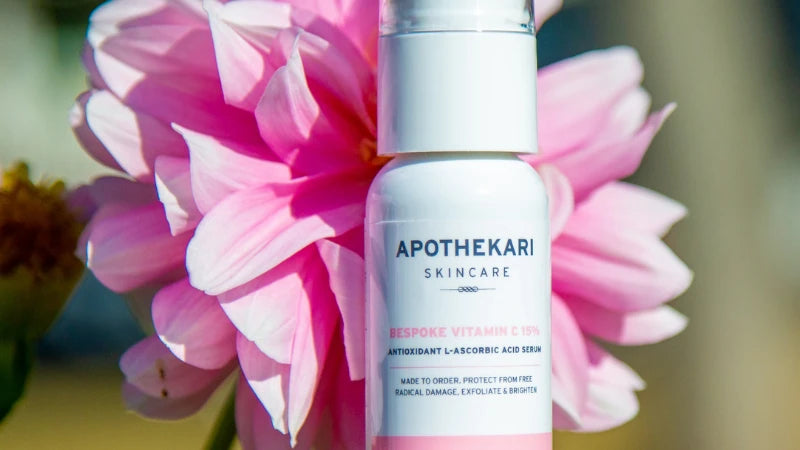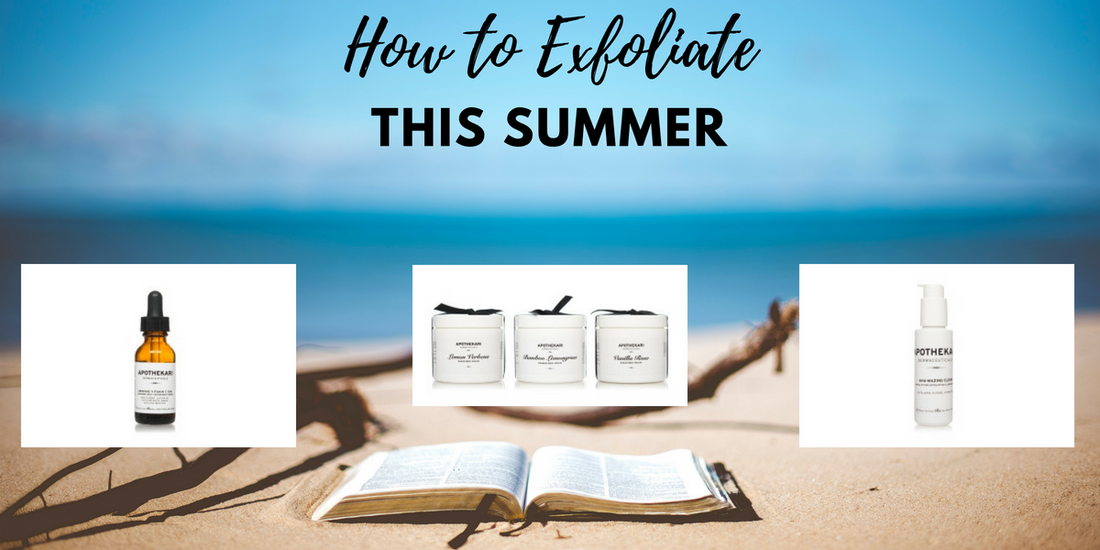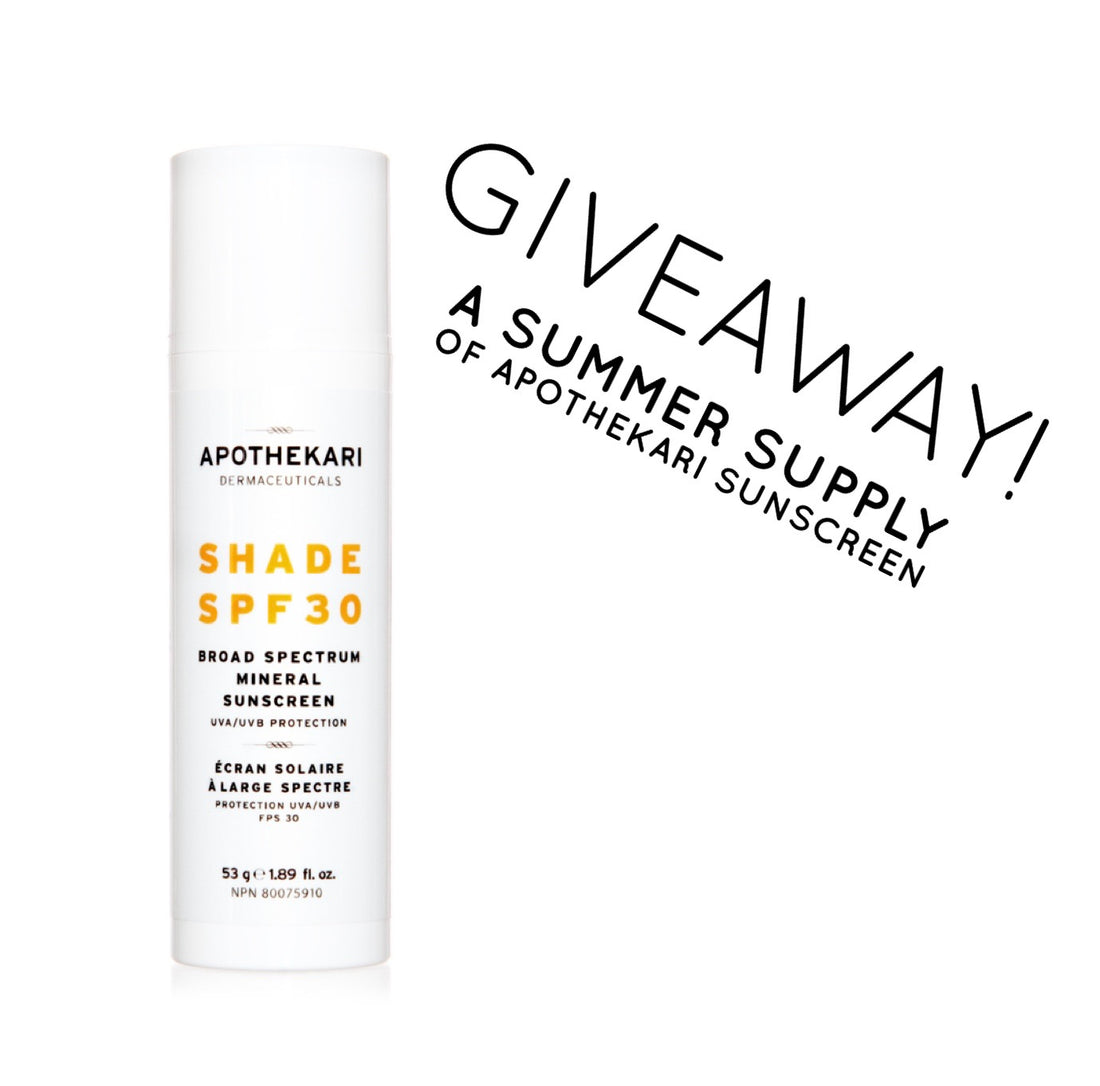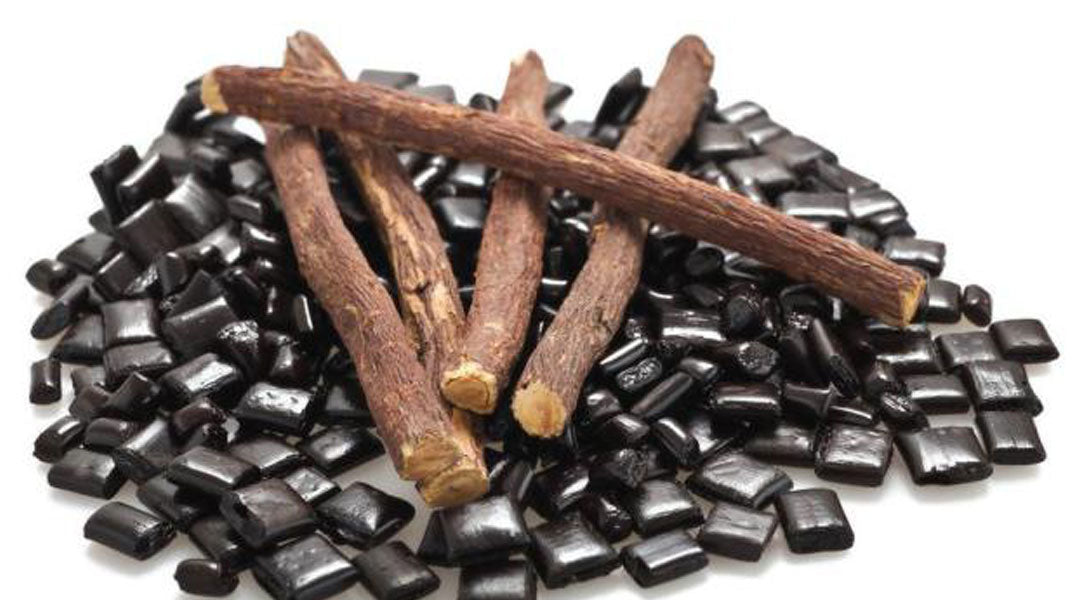Blog
Are Parabens Bad in Cosmetics?
When it comes to cosmetics are parabens bad? Widely used as preservatives since the 1950s, parabens are available in a range of forms including butylparaben, ethylparaben, isobutylparaben, methylparaben, or propylparaben. They are added to health, beauty and personal care products to keep them free from fungus, mold, bacteria and other dangerous microbes. They are also used in baked and processed foods. While the use of preservatives in skin care is non-negotiable when it comes to maintaining the safety and integrity of your cosmetics, there are many choose from. In this article, let’s look at parabens in a bit more detail. The Paraben Controversy In a 2004 study, trace amounts of parabens were found in breast cancer samples. While the study didn’t prove that they can cause breast cancer, it did confirm that parabens were able to enter the skin and remain within tissue. A more recent study found higher levels of one paraben, n-propylparaben, in an area of the breast where the highest proportion of breast tumors is found. Because they’re known to have weak estrogen-like properties, there is concern for their potential as endocrine disruptors, which means that they are capable of disturbing the normal function of the hormone system. Since our hormones control many of functions of our body, a disruption to this can impact several things including growth, development, reproduction and brain function. Parabens are known to mimic the growth effects of estrogens on breast cancer cells, yet some consider their effect too weak to cause harm. However, a 2015 study looked deeper by examining breast cancer cells and exposing some to parabens. Researchers found that they not only triggered the estrogen receptors by turning on genes that caused the cells to grow, but did it in quite a significant manner and at very small concentrations. The study demonstrated that parabens may be more potent at lower doses than previous studies have suggested, which may spur scientists and regulators to rethink the potential impacts of them on the development of breast cancer. What Should One Do – Are Parabens Bad? The concentration of parabens used in personal care products tends be less than 1% and both the Food and Drug Adminstration (FDA) and the American Cancer Society maintain that studies haven’t shown any direct link between parabens and health problems — including breast cancer. There are also no concerns or restrictions regarding their use in Canada or Australia. In the EU, regulators have signed off on the safety of some parabens, but increased restrictions on their use and completely banned them in some instances. They have also reduced the maximum concentrations allowed for propyl- and butylparaben. Contrary to many rumours, the use of parabens has not been banned in the EU. So, are parabens bad? Maybe, maybe not. What is clear is that more research is necessary. If you wish to avoid them, it’s important that you get used to reading product labels. Avoid those listing anything ending in -paraben – ethylparaben, butylparaben, methylparaben, propylparaben, etc. Also keep in mind that just because a company says that their products are ‘paraben free’, it doesn’t mean it’s safer as it could be hiding a host of other potentially bad-for-you ingredients, including not having an adequate preservation system. Products that are anhydrous can be safely formulated without preservatives but anything containing water must contain one. For those of you who ask the question, “are parabens bad?”, the answer isn’t clear. However, at Apothekari we have taken the precaution of formulating without them because why risk it when safer options are available.
Learn morePreservatives in Skin Care – 5 Things To Know
The use of preservatives in skin care can be a confusing topic. On the one hand, you’ll hear about how preservatives are associated with side effects. Yet, other companies and scientifically minded individuals (like me) express concern over the safety of cosmetics promoted as being ‘preservative free’. It’s getting confusing out there! In this post, let’s take a closer look at preservatives in skin care to help you understand why preservatives are important and how to choose products that are as safe as can be. Here are five things that will help you navigate the cosmetics counter without a science degree. 5 Tips to Navigate the Cosmetics Counter 1. If A Product Contains Water, It MUST Have a Preservative Many cosmetics contain water and when water is present, it contributes to the growth of mold, bacteria and fungi. Even if the formulation doesn’t contain water, cosmetics are often kept in humid environments and may be contaminated when your hands touch the contents. Preservatives help to prevent the growth of these dangerous substances. 2. Not All Chemical Preservatives Are Bad While chemical preservatives may be problematic in high doses, the quantities used in cosmetics are minimal, generally less than 1%. The main concern is with preservatives that cross over into the blood stream where they may lead to side effects. The following are ones we should watch out for: Phenolic acid (Phenol). In large quantities, it has been known to cause respiratory issues, coma, fainting, and even paralysis. Phthalates: Phthalates can be absorbed through the skin and accumulated in the body. They are associated with the development of breast cancer, asthma, ADHD, obesity and Type 2 diabetes, neurodevelopmental issues, behavioral issues, autism spectrum disorders, altered reproductive development, and fertility issues. Petroleum-based compounds: Some (propylene glycol, polyethylene glycols, or polyoxyethylene) can be contaminated with 1,4-dioxane, a chemical that the FDA says may cause cancer. However, it’s important to note that most cosmetics companies these days will test for this before using it so it isn’t as big as an issue as it once was. Formaldehyde: This is a carcinogen and can cause allergies, irritation, and asthma. 3. Beware of Paraben Free Labels Although many companies (Apothekari included) are moving away from the use of parabens in their products, the alternatives may not necessarily be better. (see the list of ones to avoid in number 2, above). Parabens have estrogenic activity and this effect has been linked to fueling the growth of existing cancer cells. Some studies have shown them to be carcinogenic (cancer causing) as well. The science isn’t conclusive and parabens are just one of many chemicals we’re all exposed to on a daily basis. However, we feel that in this case, it’s wise to exercise caution especially when safer alternatives exist. 4. Preservatives May Not be Listed on the Label Unfortunately for us, some companies play the game of misleading consumers by not listing preservatives on their label even when their formulations contain them. Yup, it happens! This kind of disingenuous marketing isn’t as uncommon as you may expect and you can be duped into thinking that the product you’re purchasing is ‘preservative-free’ when in fact it isn’t. 5. Natural Preservatives are NOT Necessarily Better The word ‘natural’ isn’t regulated when it comes to cosmetics so it doesn’t really mean anything. Natural preservatives are not necessarily safer and they may be less effective than conventional ones. Safer preservatives include food grade preservatives (like potassium sorbate and sodium benzoate); alcohols (organic ethanol, grape alcohol, benzyl alcohol, and witch hazel); and a short list of others that are sourced from plants (like gluconolactone, ethylhexyglycerin, triiostearyl citrate) and some that are synthetic but non-toxic preservatives, like dehydroacetic acid. However, you may require natural preservatives in larger concentrations than chemical ones. They may also have heavy smells and textures that many chemical ones lack. Chemical preservatives are often cheaper, more efficient, more predictable and often associated with fewer allergic reactions. If your health and safety are important, ensure that there are preservatives in skin care products that you and your family use. Inadequate preservation will not only make products smell and look bad but may introduce dangerous organisms to your body that can lead to severe health issues including blindness. Additionally, since cosmetics are often stored in warm and moist environments, we are creating a breeding ground for bugs. Unless a product is completely oil based, preservatives are essential and non-negotiable. The topic of preservatives in skin care is so confusing, so you may wonder what to do. First, read labels and go with companies that you trust. By becoming an informed consumer, you’ll be able to rely on facts and not be swayed by marketing. You can read more about our ingredients philosophy, including the use of preservatives in our line here.
Learn moreHow To Choose A Vitamin C Serum
If I had to make a list of my favorite skin care products, a Vitamin C Serum would get top billing. That, along with an SPF 30+ sunscreen and a retinoid treatment, would round out the list of my three must-haves. Shop Bespoke Vitamin C 15% We know Vitamin C as the vitamin that prevents scurvy, but it’s also essential to our overall health, including that of our skin. Today’s post is dedicated to this amazing, superstar ingredient. Let’s take a closer look so that you know how to find a Vitamin C serum that’s just right for you and your skin. Shop Bespoke Vitamin C 10% What Should I Look For When Choosing Vitamin C Serum? I’ve written about Vitamin C and its skin benefits before, but in this post, let’s get into the nitty gritty. While ascorbic acid/ L-ascorbic acid is the form of Vitamin C that is most well known, it is also available in several other forms. When it comes to skin care, you may find sodium ascorbyl phosphate, ascorbyl palmitate, retinyl ascorbate, tetrahexyldecyl ascorbate, magnesium ascorbyl phosphate, and ascorbyl glucoside along with others included in a range of products such as serums, lotions and moisturizers. All of these forms have skin benefits, but none compare to l-ascorbic acid when it comes to the amount of research and clinical studies to back up its use in skin care. For that reason, it’s the form of Vitamin C we love most at Apothekari and why you’ll find it included in our Bespoke Vitamin C Serums. Vitamin C is an essential nutrient involved in tissue repair and the enzymatic production of certain neurotransmitters. It is required for the optimal functioning of several enzymes and is also important for the immune system. Lastly, it functions as an antioxidant, helping to protect against free radical damage. A diet high in vitamin C can help to boost your overall wellness, but in order to get adequate concentrations to the skin, a topical treatment works best. A Vitamin C Serum can provide a range of benefits including: Evening out your skin tone by decreasing melanin synthesis associated with pigmentation Protecting skin from damage caused by pollution Improving skin hydration, and Boosting collagen production to help keep wrinkles at bay. When properly formulated, ascorbic acid helps create more youthful and firmer looking skin that looks brighter and more evenly toned. Ascorbic acid by itself is a pretty sweet ingredient but it benefits from the addition of other antioxidants who work in conjunction with it to deliver the ultimate in free radical protection. Does It Matter Which Form of Vitamin C You Use? If you’re convinced that you need to have Vitamin C in your routine, here’s how to determine if the one you’re considering is the right one for you: Look for L-ascorbic acid or ascorbic acid listed as one of the active ingredients. While it is a finicky ingredient to work with (it’s light and air sensitive), it is also delivers the biggest bang for your buck. Other derivatives do work, but none pack quite the same punch. Ensure that the ingredient is listed high up in the ingredients list to ensure you are getting a product with enough potency. Some companies disclose the concentration in their formulation and when it comes to ascorbic acid, look for at least 10%. While highly effective, L-Ascorbic Acid cannot be tolerated by some skin types. If this is the case, opt for a lower concentration (up to 10%) or seek an alternate form of Vitamin C like sodium ascorbyl phosphate, tetrahexyldecyl ascorbate or magnesium ascorbyl phosphate. They are also effective and you will see results, but they may take longer. Look for opaque packaging and if possible, an airless pump to help protect the formulation. Vitamin C benefits from other antioxidants, including other forms of vitamin C but also ingredients including green tea, vitamin e, ferulic acid, alpha lipoic acid, etc. If your Vitamin C serum contains additional ingredients as well, it’s likely to do more for your skin. Use a Vitamin C serum in the morning when it will help to protect against free radical damage that we encounter during the day. I layer it on first thing after washing or splashing my face and before I put on my sunscreen. Sunscreen plus an antioxidant like Vitamin C is a winning combination as I’ve outlined previously. It is possible to use it at night, but it may be too much for your skin used in conjunction with other treatments including a retinoid or alpha hydroxy acids. When it comes to a Vitamin C Serum, do you have a favourite?
Learn moreHow To Exfoliate This Summer
If you’re after radiant, glowing skin on your face and body, you’ll want to know how to exfoliate. Summer, with its more revealing clothing styles means you need to up your skin care game. In this blog post, we break down the main points about exfoliation ensuring you know how to exfoliate the right way. Our body produces new skin cells about once every 28 days with the process slowing as we age. New skin cells are pushed to the surface, forcing the older ones to the top. Exfoliation is the process of removing the dry, dead skin cells that sit on the skin’s surface. Removing this top layer not only helps to brighten one’s, it also allows topical treatments to absorb better, thereby increasing their efficacy. Exfoliation is important and here’s how to exfoliate this summer, and all year round… How To Exfoliate 1. Mechanical or Chemical Exfoliation? When it comes to choosing how to exfoliate, there are two main routes to choose between. Physical exfoliation relies upon pressure, from a washcloth or a scrub to help whisk away dry skin cells. The skill of the practitioner is important here – rub too hard and you risk going too deep and causing skin irritation. Rub too lightly and you may not achieve any results. Chemical exfoliation, on the other hand, relies on ingredients that help to break the glue that holds skin cells together thereby assisting their removal at the skin’s surface. Chemical exfoliants include ingredients such as alpha hydroxy acids (AHAs), beta hydroxy acids (BHAs) or Vitamin C/L-ascorbic acid (as found in our Bespoke Vitamin C Serum). Serums, toners and moisturizers can contain chemical exfoliating agents. If you prefer a wash off product, a cleanser like our AHA-Mazing Clean Cleanser includes a triple combination of lactic, malic and tartaric acids to deliver softer and smoother skin. Treatments designed for at home use don’t penetrate any deeper than the top layer so there is little risk of damaging skin. For this reason, we tend to recommend sticking with chemical exfoliants for facial use. When it comes to your body, however, the less sensitive skin can usually tolerate mechanical exfoliation. There’s nothing like using a great body scrub in the bath or shower to help deliver soft, smooth legs and arms. Have you tried any one of our body polishes including our Bamboo Lemongrass Foaming Body Polish? 2. Don’t Overdo It When it comes to exfoliation, less is more. Aggressive exfoliation may result in redness, stinging and irritation. The goal is a glow and not a burn! Keep in mind your skin’s sensitivity and consider exfoliating between one to five times a week. If your regimen includes other active treatments such as retinoids or acne products you may want to space them out to avoid damaging skin. 3. When to Skip Exfoliation If your skin is red and inflamed, if you have open cuts or wounds, an infection or a sunburn, hold off. In these cases, the increased skin irritation will do more harm than good. Inflamed skin needs TLC above exfoliation. Wait for skin to heal first and above all, go slowly and be gentle. Beyond delivering softer, smoother and radiant, glowing skin, exfoliation can help to remove ingrown hairs, improve the results of your fake tan (by making it appear less splotchy and more even) and also help to minimize clogged pores/blemishes. Have we convinced you about its importance?
Learn moreA Sunscreen Giveaway
Who doesn’t love a GIVEAWAY?! Here’s a chance to get your hands on SHADE SPF 30, our well-formulated, non-whitening, non-greasy, mineral-based sunscreen that covers all the bases and protects against UVA/UVB rays all year round. We’ve literally got you covered with our new sunscreen! We’ve worked so hard to perfect it and are excited to share it with you! Be good to your skin and stay sun smart, everyone! THE GIVEAWAY: One lucky winner will receive a summer’s* supply of our SHADE SPF 30 facial sunscreen – available just in time for the intense summer heat! Any purchase at Apothekari.com between June 7 (we’re making this one retroactive) and June 22 gets you an automatic entry into the draw. To increase your chances, pop on over and enter through our Instagram, Twitter and Facebook pages – links below. G O O D L U C K and keep an eye on social media for stories and posts and a closer look at our brand new SHADE SPF 30 sunscreen. **Non-waterproof facial sunscreen **We highly recommend sun protection all year round *3 months’ supply (3 bottles with a total value of $135) to get you through the summer – if used daily at recommended dose of 1/4 tsp application. Apothekari SHADE SPF 30 Mineral sunscreen formulated with zinc oxide (13.5% concentration). Chemical sun filter free. SPF 30. Non-whitening. Broad spectrum UVA/UVB protection. Antioxidant support to protect against free radical damage generated by UV exposure. Suitable for all skin types. Especially suitable for sensitive skin types unable to tolerate chemical sunscreens. Physical blocking sunscreens like those containing zinc oxide are the sunscreen of choice for individuals with melasma because they work to block/reflect sunlight and prevent UV rays from reaching the skin. Chemical sunscreens absorb UV rays and convert it to harmless energy so the rays may still contribute to the development of melanin. Fragrance free Paraben free Silicone free Sulfate free Phthalate free Gluten free Synthetic colorant free Cruelty free and absolutely no animal testing. Contest Details Contest valid until June 22, 2018. Winner announced June 25, 2018. Winner will be selected at random and contacted directly to claim their win & provide mailing information. If no claim has been made within 72 hours, we will select another name. By entering the giveaway you agree to have your name or social media handle publicly posted. *Radio Maria Canada Interview with Cathy Biase If you missed it, I was recently interviewed by the lovely Cathy Biase on her show The Health Hub at Radio Maria Canada. Cathy is a Holistic Nutritionist and Cancer Coach with a Bachelor of Science from the University of Toronto with a major in Psychology. During the show we talked about how to promote healthy skin, skin care must haves and adopting a holistic approach to skin care. Podcast coming soon and we will share the link with you! If you’re interested in health, nutrition and wellness, Cathy’s show features health experts who share advice on how to be the best you. She’s a wonderful, engaging interviewer and I highly recommend tuning in to her show, Tuesdays 8 am Pacific/11 am Eastern.
Learn moreAntioxidants + Sunscreen = A Winning Combination!
When it comes to sun protection, antioxidants + sunscreen are a winning combination. No one disputes the importance of sun protection in minimizing the damaging impact of ultraviolet (UV) rays on skin. And while daily sunscreen use is one of the best defenses we have to help keep our skin looking young and healthy, you may not be as aware about the role that antioxidants play as well. Antioxidants + Sunscreen: Here’s Why While sunscreens protect from sun damage by either blocking or reflecting UV rays that can lead to sunburn and contribute to sagging skin, wrinkles, age spots and skin cancer, antioxidants help protect skin in a different way. When our skin comes into contact with UV rays, destructive particles called free radicals are created. Free radicals are highly active and unstable molecules that can start a chain reaction of skin inflammation and damage, leading to premature skin ageing and even serious skin health issues. Several studies, including this one have found that antioxidants fight against free radical damage by helping to neutralize them and thereby minimizing their negative impact on skin. While the consumption of high-antioxidant foods delivers them internally, topical application is the most effective way to increase their concentration in the skin. Antioxidants within the skin are depleted when our skin is exposed to the sun during times of sun exposure, but they can (and should) be replaced with topical formulas. Antioxidants. Lots to Choose From There are a number of effective antioxidants to choose from including well known and well-studied Vitamins C and E. Other topical choices include Coenzyme Q10, green tea, lycopene, lutein and lipoic acid. You can find Vitamins C, E, ferulic acid, green tea extract, lutein, lipoic acid and a range of additional antioxidants in made to order Bespoke Vitamin C 15% Serum. Ergothioneine, a naturally occurring amino acid and antioxidant and is included in our new Shade SPF 30 Sunscreen (coming soon!) to help prevent UV damage in conjunction with zinc oxide and red algae extract. Although sunscreens and antioxidants should be part of your UV protection strategy, keep in mind that wearing sunglasses and hats, covering up, seeking shade and staying out of the sun during its peak hours (10 am – 4 pm) are just as important in helping to keep your skin safe. Apply them during the morning to clean, dry skin to ensure protection from daytime sun alongside your sunscreen. Are you down with antioxidants – what’s your favourite?
Learn moreLove & A Gift for Mother's Day
In honour of Mother’s Day, we’ve put together a sweet promotion for you! Until May 13th, 2018 we are offering the gift of a full size cleanser ($35 value) with the purchase of any of our serums. In Order to Take Advantage of This Promotion: Add either one of the following serums to your cart: A is for Anti-Aging Serum Bespoke Vitamin C Serum 10% Bespoke Vitamin C Serum 15% Add a cleanser of your choice: Cloud Nine Foaming Cleansing Creme OR AHA-Mazing Clean Cleansing Gel Enter the code momlove at checkout and $35 (the cost of the cleanser) will be deducted from your shopping cart. Bonus – Your order qualifies for free shipping! Although you may think that Mother’s Day is related to the many celebrations of mothers and motherhood that have occurred throughout the world over thousands of years, the tradition is in fact, relatively new. First celebrated in 1908, Anna Jarvis held a memorial for her mother at St Andrew’s Methodist Church in Grafton, West Virginia, which now holds the International Mother’s Day Shrine. Jarvis wanted to honour her mother, a peace activist, for the work she did in caring for wounded soldiers on both sides of the American Civil War. She believed a mother is “the person who has done more for you than anyone in the world”. Happy Mother’s Day all.
Learn moreAnti-Inflammatory Skin Care Ingredients
In this post let’s focus on anti-inflammatory skin care ingredients following our last article on skin inflammation, what causes it and how to treat it. If your skin exhibits acne breakouts, redness or other types of discomfort, it’s sending a message that something is irritating it. Whether it’s UV exposure, allergens or something in your skin care regimen that’s throwing things off, the best thing to do is identify and eliminate the offending agent if you can. Decisive action can help to nip things in the bud before setting off an inflammatory cascade that may turn into something longer lasting that will damage skin. Corticosteroids are potent anti-inflammatory skin care ingredients available by prescription that are used to treat eczema and dermatitis. You’ll get fast results but for the most part, you shouldn’t use corticosteroids long term as they can thin skin and dampen the immune system. Lots of non-prescription anti-inflammatory skin care options are available today and they are available in a range of treatments to help all skin types. 7 Anti-Inflammatory Skin Care Ingredients Whether you need to repair or want to lessen the chances of inflammation starting in the first place, here are seven ingredients that should be on your radar: Niacinamide. Niacinamide is one of those under-valued ingredients that does so much for skin. In addition to its inflammation busting properties, it has been shown to stimulate collagen production, prevents moisture loss, increase ceramide (lipid) production and even the skin tone. Find it in our A is for Anti-Aging Serum, where it’s combined with retinaldehyde and a host of other ingredients to help deliver more youthful and vibrant skin. Chamomile. Rich in bisabolol, an anti-irritant that naturally occurs in chamomile, this herb’s healing properties help to soothe redness and rosacea and repair damaged skin. Find it in our A is for Anti-Aging Retinal Serum. Turmeric. This beautiful golden hued spice is gaining lots of attention due to its anti-inflammatory compounds, including curcumin. When ingested orally, the active components in turmeric are useful in managing arthritis. Skin care preparations that include turmeric calm and soothe skin and help to brighten the skin tone. Blue Tansy. The blue colour comes from azulene, which has anti-inflammatory properties and is helpful in battling cystic and hormonal acne. White Willow Bark. Rich in inflammation fighting compounds known as flavonoids, white willow bark has anti-inflammatory and pain relieving abilities comparable to aspirin. It is a useful addition in the battle against acne breakouts. Green Tea. Sipping on a cup of green tea provides instant zen and this vibe transfers over to skin when applied topically. Green tea is a source of epigallocatechin gallate (EGCG), a polyphenol in that delivers both antioxidant and anti-inflammatory skin care properties and is known to protect against UV damage. Find green tea extract in our Bespoke Vitamin C Serum. Licorice. Whether from the root or as an extract, licorice has been used in ancient Chinese medicine to treat inflammation for centuries. This heavy-hitter is a boon to sensitive skin prone to irritation. What are your favourite anti-inflammatory skin care ingredients?
Learn moreUnderstanding Skin Inflammation
Skin inflammation is one of the most common issues experienced when it comes to our body’s largest organ. The condition may be acute (short lived) or chronic (longer lasting). Under ideal circumstances, inflammation is actually a good thing as it’s our built in defense system, designed to protect us from invading bacteria, viruses and injuries. However, left untreated over a long time period, it can cause problems. Shop All Apothekari Acute skin inflammation results from exposure to UV rays, allergens or contact with potentially irritating ingredients like soaps and other topical treatments. Inflamed skin may have a rash, and be itchy and/or red. Symptoms tend to resolve spontaneously within a couple of weeks, especially if the irritant is removed. For the most part, acute conditions leave no serious damage behind. Chronic skin inflammation is often the result of an immune inflammatory response within the skin itself. Presenting as acne, eczema, rosacea, dermatitis and psoriasis, it tends to be longer lasting and may cause significant and sometimes serious tissue damage. Acne is an inflammatory condition, often exacerbated by the presence of bacteria. Finally, rosacea is another skin condition often triggered by inflammation from stress, food or hormones. What Causes Skin Inflammation? Skin inflammation is a complex process and researchers are still trying to understand it in full. In general, a trigger results in the production of inflammatory hormones (like cortisol), which bind to receptors on target cells and stimulate the production of further inflammatory signaling hormones. Lifestyle factors including stress, lack of sleep, poor diet, second hand smoke and sun exposure can all contribute to skin inflammation. Blood vessels may dilate, nerve cells may be activated, and some cells may leave the blood and migrate to the skin, where more inflammatory hormones along with enzymes, free radicals and damaging chemicals are produced. While the response arises as a way to protect the body against a perceived threat from the initial trigger, the end result is a large inflammatory response that can actually cause considerable damage to the skin. Treatment Conventional treatments for chronic inflammation such as eczema and dermatitis often include corticosteroids. While effective in chronic cases, corticosteroids aren’t that great in treating acute inflammation. Managing lifestyle factors – watching what you eat, getting enough sleep and trying to control stress are key. Cortisol, the stress hormone slows wound healing, hastens the breakdown of collagen and can accelerate the aging progress, leaving skin looking saggy, wrinkled and less vibrant. Exercise boosts the release of endorphins, which are anti-inflammatory. Last, sleep gives your skin a chance to heal and repair. It’s not called ‘beauty sleep for nothing! Here are 5 ways you can help fight against skin inflammation: 1. Consume Foods Rich in Anti-inflammatory Compounds This includes foods rich in omega-3 fatty acids (like fish), antioxidant rich berries, nuts and leafy greens. 2. Minimize the Consumption of Junk Food Fast food, refined carbohydrates and sugar contribute to inflammation. Food allergies may also play a factor so if you suspect your diet is the cause try to identify the allergen and eliminate it. It’s definitely worth a try! 3. Be Gentle When it comes to topical treatments, go easy. Opt for gentle cleansers (like Cloud Nine Foaming Cleansing Crème or AHA-Mazing Clean Cleanser). Don’t over exfoliate or combine the use of aggressive products all at once. Space out retinoids, alpha hydroxy acids and low pH Vitamin C. Rethink feeling ‘squeaky clean’, which often results in dry and irritated skin. If skin feels itchy and irritated or appears red, take a product break. 4. Wear Sunscreen Every day. UV rays are a source of free radicals, which can lead to inflammation. 5. Sleep Well. Exercise. Manage Stress. Since stress is one of the main reasons for skin inflammation, stress reduction is key. Exercising and sleeping better are two ways to help manage stress. Whether it’s short-term inflammation (like hives, a rash or sunburn) or the cumulative effect of chronic assaults, inflammation does take a toll on the skin. A weakened skin barrier function can lead to trans-epidermal water loss, leaving skin feeling dry and more sensitive. The earlier you tackle it the better. In our next post, we discuss some of the best anti-inflammatory ingredients you can use to help skin heal. Stay tuned!
Learn moreAlpha Bisabolol and Skin
You’ve likely heard of ingredients including Vitamin C, retinoids and peptides, ingredients essential to great skin, but have you heard of alpha bisabolol? Shop A Is for Anti-Aging Serum (Our Retinoid Formulation) What is Alpha Bisabolol? Alpha bisabolol, often shortened to bisabolol, is also known as levomenol, a naturally occurring compound that is the primary constituent of the essential oil from German chamomile. Bisabolol may also be manufactured synthetically, where it is chemically identical to that found in nature. It’s one of those ingredients that is a heavy hitter when it comes to skin care yet sits quietly in the background doing its thing, without drawing much attention to itself. Alpha Bisabolol has been shown to have anti-irritant, anti-inflammatory and anti-microbial features. It also can help to increase the absorption of certain ingredients. It is high in panthenol, a B vitamin, which assists with helping to heal and moisturize skin and hair. For centuries, bisabolol has been used in skin care preparations due to its healing properties. And, it’s weak, sweet floral aroma makes it a useful addition to fragrances. What does Alpha Bisabolol Do? Historically, people have used alpha bisabolol medicinally for its anti-irritant, anti-inflammatory and anti-microbial properties. In cosmetics, it performs as a skin conditioning agent where it enhances the appearance of dehydrated or damaged skin by reducing dryness and flakiness and restoring suppleness. Because of its high panthenol concentration, it can effectively stimulate and promote the skin’s healing process and encourage healthy hair growth. Its ability to enhance the penetration of other cosmetics ingredients makes it a useful addition to treatments that contain other actives including antioxidants, peptides and retinoids. Its skin soothing and anti-inflammatory properties are beneficial not only when it comes to wound healing, but also in calming irritated skin. Because it has so many beneficial traits, you can find alpha bisabolol in a range of products including serums, moisturizers, sunscreens, cleansers, and makeup. I’m a big fan of this ingredient and if it were possible, I may want to include it in everything! For now, look for it in our A is for Anti-Aging Serum, where it’s included for its anti-inflammatory, wound-healing, and skin soothing properties.
Learn moreHow to Layer Skin Care Treatments
A topic that seems to generate a lot of confusion is how to layer skin care treatments. In a world of serums, essences, concentrates, emulsions, moisturizers and toners, the confusion probably isn’t all that surprising. I hope that this post helps to clarify how to do it right. How to Layer Skin Care Treatments Right While it is possible to layer most skin care products, there are a few steps that will help you to do it properly: Start With a Clean Canvas. Before applying any products to your face, cleanse it to remove dirt and make-up. This helps to create a clean base ensuring that the products you apply will be absorbed by the skin. Apply in the Correct Order. Apply treatments in order of weight and consistency, starting with the thinnest (runniest) in texture first. If you plan on applying two products similar in consistency, apply the one that addresses you major skin concern(s) first. Don’t Apply Too Much. Your skin can only absorb so much so start with a small amount and gently press into the skin. You shouldn’t have visible product remaining on the surface before applying the next one. Don’t Apply Too Many Products. A general rule of thumb is to layer up to 3 products, waiting about a minute between applications. This will allow products to be absorbed, leaving skin looking smooth and balanced vs gooey and messy. Finish off with Sunscreen. Sun protection should be the last thing you apply to skin. Sunscreens earn their SPF rating without any product going on over them. While this would be the way to do it in an ideal world, many of us use foundation and make-up. If that’s the case, apply it over your sunscreen. Here’s an example of how to layer skin care products: If you like to use toners, apply this first. Follow with a target serum treatment like A is for Anti-Aging (PM) or Bespoke Vitamin C Serum (AM). Moisturize (Daily Infusion Moisturizer) or use an oil to seal everything in. Sunscreen (AM) goes on last. This step makes four so if you use all the products above, you may want to consider removing one. I hope this makes sense and helps you to use your products for maximum benefit.
Learn moreBusiness 101 - The Importance of Teamwork
As a small business owner, the importance of teamwork can’t be emphasized enough. While I’ve had to wear many (MANY) different hats over the years, I know that building a successful business does not come via one’s hands alone. During the early days of building my first online wellness business, I did everything. I answered phone calls, packed and shipped orders, replied to emails, maintained inventory, wrote blog posts and newsletters and worked social media. I’d worry about paying the bills. Money was hard to come by, but making the leap to hire someone to help me in the day to day management of the business was one of the best decisions I ever made. By taking every day activities like shipping, customer service and inventory management off my plate, I was able to focus on the task of building the business. I left the accounting to an accountant. And, I hired someone to help with social media. While it seemed that I was spending money that I didn’t have, hiring an employee and other specialists was one of the best business decisions I made. Delegation is Key As a bit of a self-admitted control freak, delegation did not come easily. The right way was to do it perfectly and to do it my way. I soon discovered that this was a recipe for disaster. While good systems and best practices are essential to business success, people often get to the same endpoint in different ways. If you hire well – intelligent, motivated and resourceful people – things get looked after just as well and often better, than one person trying to juggle too many things at once. Team members who understand the direction of the company, its processes and its hardships take ownership in a way that allows a company to flourish. In order to thrive, a business needs to rely on a group of people who look after different aspects of the company. Teamwork ensures for a division of labour that helps to maximize efficiencies, allow specialists to do what they do best and for everything to get accomplished in the best possible way. Today, I work with a range of people who are employees, contractors and consultants. Customer Service Specialists Social Media Manager/PR Consultant Accountant Internet Specialists Photographers/Videographers Writers Their focus on specific activities frees me to the job of building Apothekari. The old adage “Two heads are better than one” exists for a reason. It’s true! Effective teamwork fosters creativity, builds trust, blends complementary skills and promotes a wider sense of ownership. It’s a business lesson I’ve learned well.
Learn more

